Drug company stung by criticism of 'outrageous' EpiPen price rises
- Published
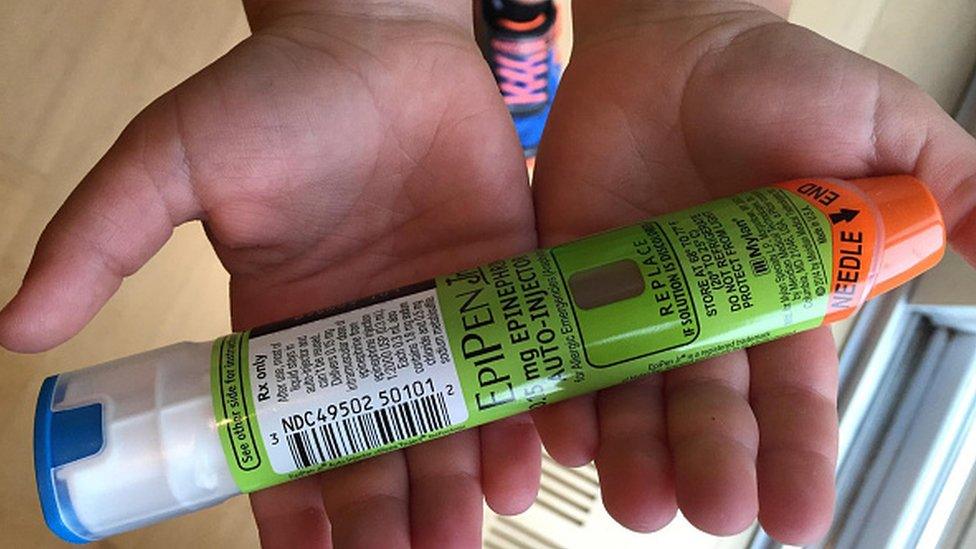
The pharmaceutical company that makes EpiPens has said it will reduce the cost for some US users, after coming under mounting criticism for a series of price hikes, which have seen the market rate of the potentially life-saving treatment for allergic reactions increase by around five times in less than a decade.
The dramatic rises in the American price for the auto-injector has led to some patients and their relatives using social media to share advice on how to order the device from New Zealand, where it is significantly cheaper.
This week the topic became an election issue when Democratic presidential candidate Hillary Clinton used her social media accounts to describe the behaviour of the drug company, Mylan, as "outrageous" and "just the latest troubling example of a company taking advantage of its consumers."
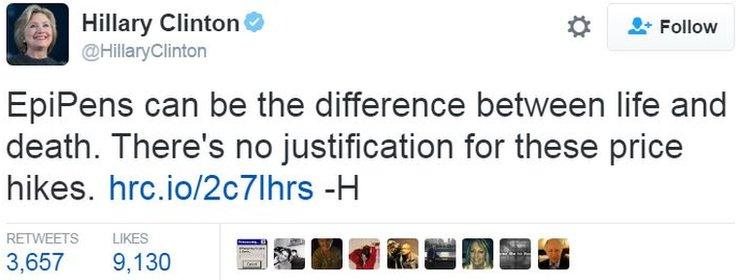
"Millions of Americans with severe allergies rely on their EpiPens. When an allergic reaction leads to anaphylactic shock, a shot of epinephrine can literally be the difference between life and death. But now, just as parents are about to send kids with severe food and insect allergies back to school, the EpiPen's manufacturer is hiking its price to an all-time high," she said in a statement on Facebook, external.
The drugs company has come under fire from leading politicians of both main parties. Though one who has so far not commented is West Virginia Senator Joe Manchin, a Democrat, who is the father of Mylan's CEO, Heather Bresch - a family connection which some on social media have highlighted.
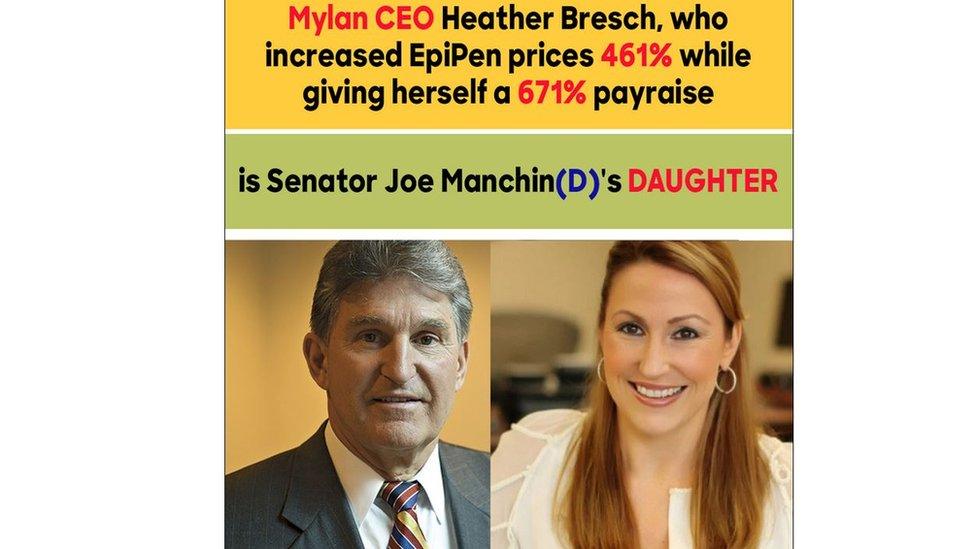
Some social media users have been creating graphics to point out that Mylan's CEO is the daughter of a Democratic senator
Mylan has also been publicly rebuked by the Sex & The City actress Sarah Jessica Parker, who had previously endorsed EpiPens when she spoke about her son's peanut allergy. Announcing in an Instagram post that she was ending her association with the company, she wrote: "I hope they will seriously consider the outpourings of voices of those millions of people who are dependent on the device, and take swift action to lower the price."
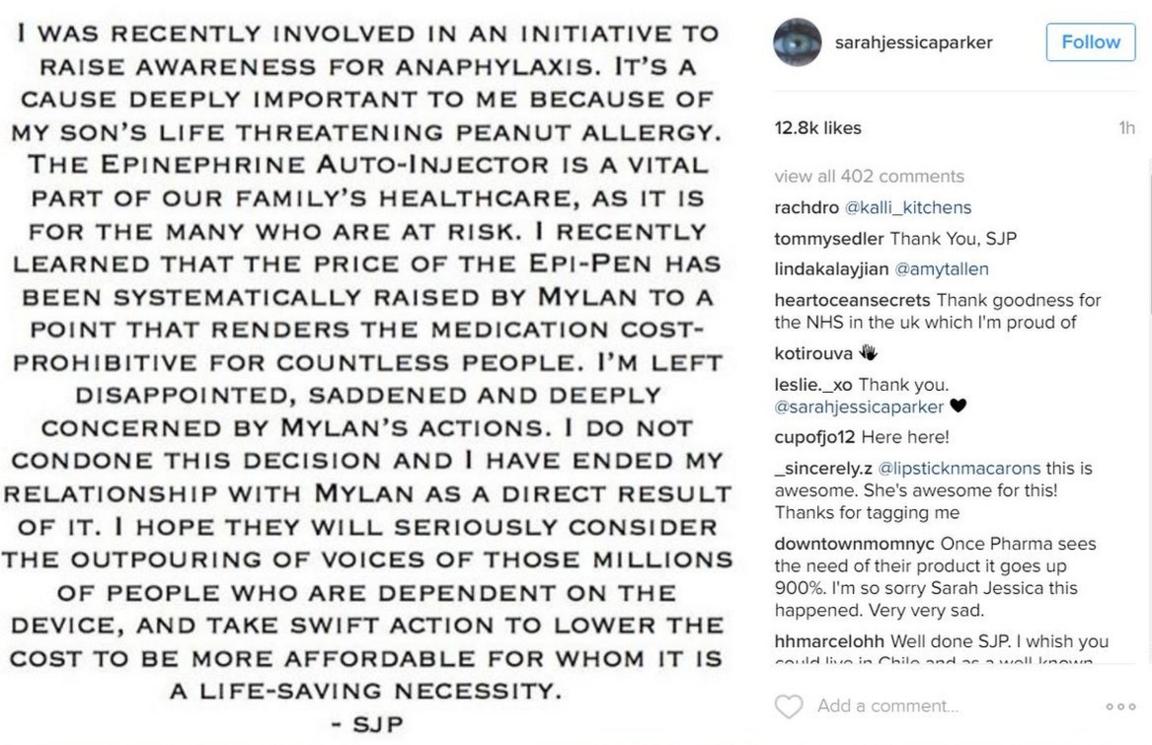
EpiPens are a simple way to deliver a single dose of the hormone epinephrine (more commonly known as adrenaline) which is used to treat potentially life threatening anaphylactic shocks. Epinephrine itself is not an expensive drug, and it can be administered via syringe. But there are concerns that loading and injecting the correct dose can not only take more time in an emergency situation, but can also be potentially dangerous if administered incorrectly. EpiPens are seen as a safe delivery method as they are pre-loaded with a regulated amount of the drug.
Yet the precise measurement that the EpiPen provides is under patent protection, restricting cheaper generic alternatives from being brought onto the market. As a result, the company has been widely criticised online for its pricing policies and Heather Bresch. One online petition, external asking Mylan to lower the price of EpiPens has gained more than 80,000 signatures.
The US price of the pens has risen, from $100 for a pack of two wholesale in 2008 to about $600 this year. While differences in insurance policies vary how much each family will pay for EpiPens, many social media users who need pens available in multiple locations have said this increased cost has proved to be too expensive for them.
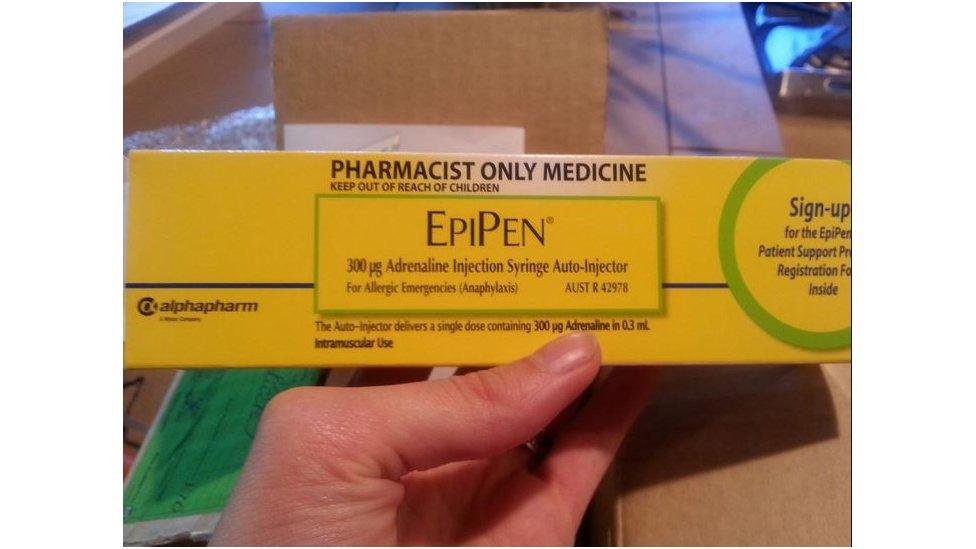
An Imgur user documents their EpiPen purchase arriving from New Zealand
Earlier this week a woman posted, external on the photo-sharing platform Imgur, advising others how EpiPens could be more cheaply acquired online from New Zealand. In the post, which was viewed more than 100,000 times in the space of a few hours, she recounted how she had been able to buy a single pen for around $120. One user wrote: "Thank you so much for this. I had no clue what to do about my son's EpiPens which we could no longer afford. You may have saved a 3-year-old's life".
Mylan's share price has taken a battering as a result of the negative publicity. But it has now rallied after the company announced on Thursday that it would help reduce the out-of-pocket cost of EpiPens by extending its discount programme to more uninsured and underinsured patients. However, it has not reduced the list price of the item. It is not yet clear how many patients this will help.
In a company statement, external, Heather Bresch said: "We recognize the significant burden on patients from continued, rising insurance premiums and being forced increasingly to pay the full list price for medicines at the pharmacy counter. Patients deserve increased price transparency and affordable care, particularly as the system shifts significant costs to them. However, price is only one part of the problem that we are addressing with today's actions. All involved must also take steps to help meaningfully address the U.S. healthcare crisis, and we are committed to do our part to drive change in collaboration with policymakers, payors, patients and healthcare professionals."
Blog by Kate Lamble
NEXT STORY: Liberté, Egalité, Burkini?
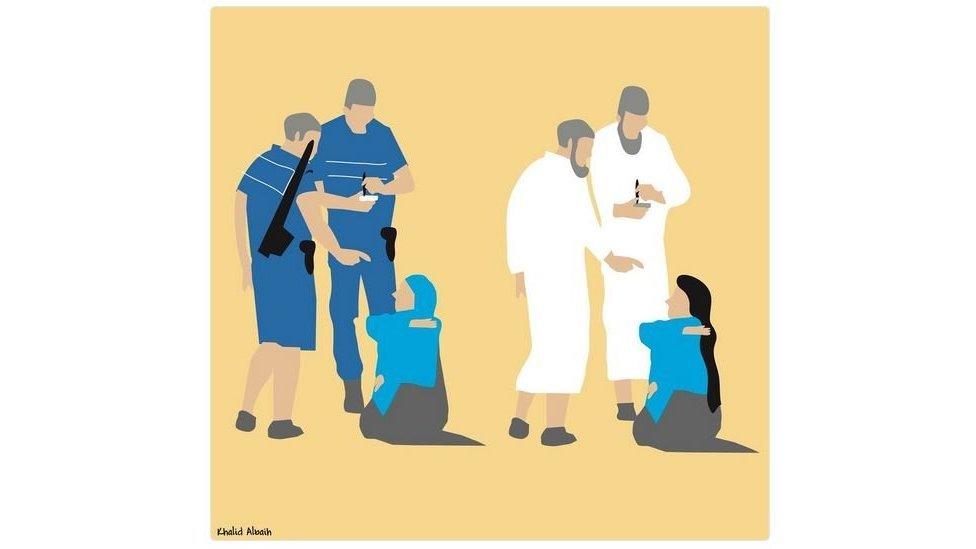
"In the name of freedom, while others in the name of religion" is the caption of this drawing by a Qatari artist
Social media debates what the burkini ban says about French values. READ MOREYou can follow BBC Trending on Twitter @BBCtrending, external, and find us on Facebook, external. All our stories are at bbc.com/trending.